Getting to Know Garibaldi
What a visit to Caprera taught me about the “Hero of Two Worlds,” including (who knew!) his part in U.S. history
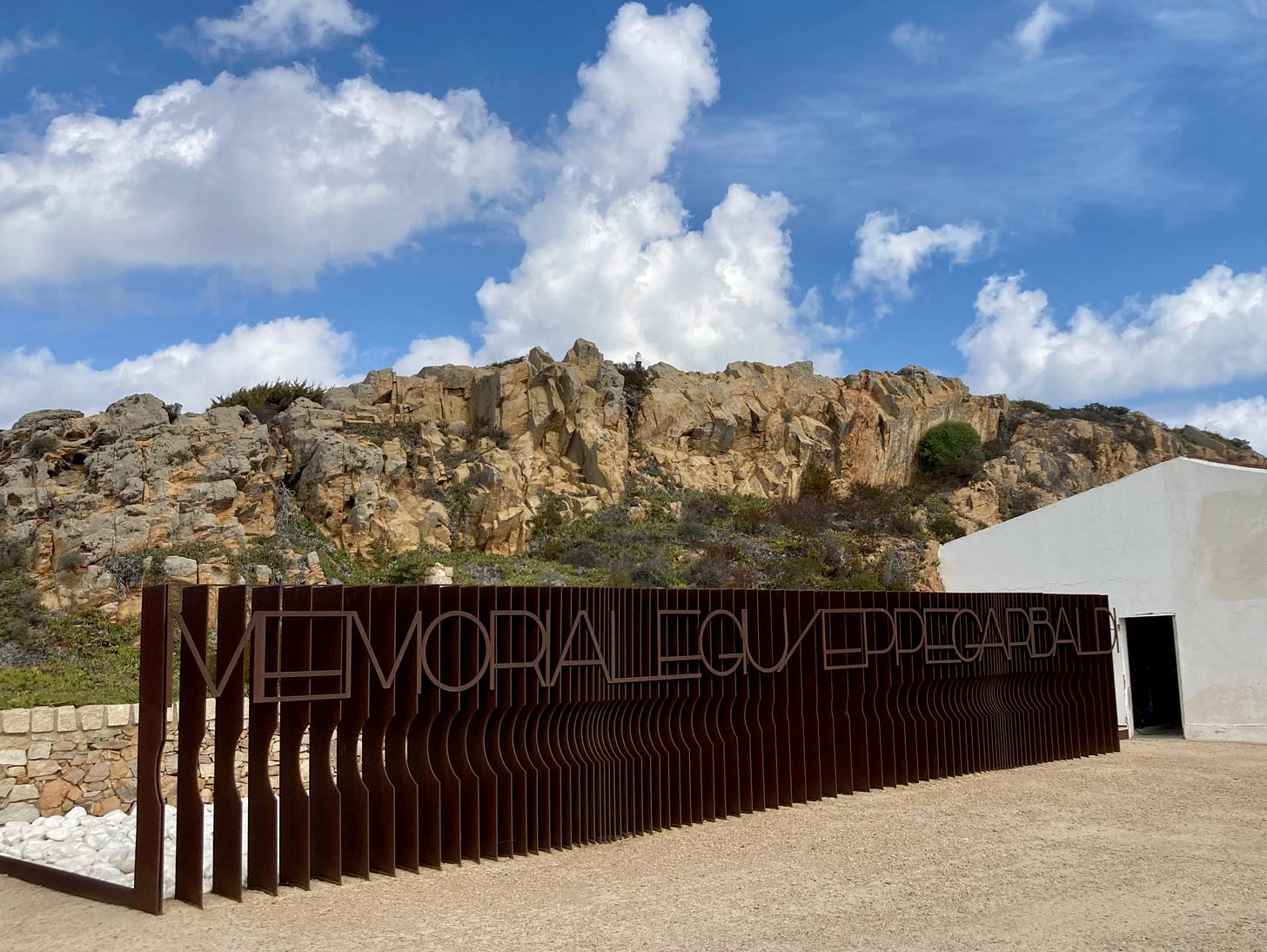
Cari amici,
Before we get to the real topic of today’s letter, I have to tell you about one last mishap in my black-clouded (literally and figuratively) trip to Sardegna. Spoiler alert: this one ended well.
Here in Europe I often do hand laundry in the bidet (and no, that’s not gross; the bowl is clean, okay?), so I set out to do just that in the bathroom in Sardegna. I had noticed that the gizmo that raises and lowers the stopper looked a bit, well, improvised, and maybe I even tried it out (which, if I had done, should have been fair warning to use the sink instead), but nevertheless, I ignored this minor fact. Laundry done, I tried to open the stopper and … niente, nada, nothing. The raising/lowering gizmo was useless, completely disconnected from the stopper, and the stopper sat so deep in the bowl that dislodging it, even with the tip of a knife, proved impossible.
This was disturbing, to say the least, because destroying someone’s property while I’m their guest qualifies as true horror for me.
Fortunately, the handyman who’d replaced the bombola a few days prior could likely solve this problem for me. He was to come by the following morning, but he couldn’t make it because, natch, someone’s house had flooded. Man, I hate it when that happens. He said he’d try instead for the afternoon, which by now you must know didn’t work out either. Still, he sent me the name of a plumber, so there was hope.
This being late afternoon on a Friday, I had my doubts that I’d hear from the plumber, but eventually I did. He asked for photos of the bidet and its pipes, explained that if he couldn’t get access he’d have to destroy the stopper, and said other things that struck fear into my heart. So I called my friend to explain the situation and she, also fear struck, said not to bother, whichever family member went to the house next would deal with it. Grudgingly, because I hated to leave without resolving the problem I’d created, I 86’d the plumber, who was very gracious.
All along I’d been thinking that if I had some sort of suction thingy, that’s all it would take to pop that baby out—like, say, a toilet plunger or even a little suction-cup toy arrow. Finding neither in the house (what, no toy arrows!), I contemplated asking the neighbors if I could borrow a plunger, then decided such a request might be perceived as a rather disgusting invasion of privacy. Out of ideas, I reconciled myself, unhappily, to leaving the stopper stopped.
As it happened, I needed some cash, so off I went to the nearest bancomat, which, as it happened, was next door to a souvenir shop. Which happened to sell toys, including a bow-and-arrow kit with suction-cup-tipped arrows. Which I bought, having ascertained that the rubber cups were sufficiently flexible and not hard plastic, and which yanked that stopper out on the first try, easy-peasy. I was, and still am, enormously pleased with myself.
Okay, on to what this letter is supposed to be about, Giuseppe Garibaldi. I think most Americans have little to no knowledge of the man, and to be honest I’m not sure which camp I fell into before moving to Italy. In short, he was a general and freedom fighter who is considered one of the “fathers of the fatherland,” a revolutionary and driving force in Italy’s unification and the creation of the Kingdom of Italy. He’s called the “Hero of Two Worlds” because of his military efforts in Europe and in civil wars in South America.
Garibaldi spent the last 26 years of his life (July 4, 1807–June 2, 1882) on the island of Caprera (so named because of the wild goats, capre, that roam its spiky, rugged interior), and there are two museums dedicated to him, one being his house and the other a memorial at a former fortress, perched nearby. By the time I’d finished with both my head was exploding from information overload. The day was surprisingly emotional too, especially being in his home and seeing the bed in which he died at age 74 (positioned so that he could see the ocean during his decline), the wall clock forever stopped at 6:21am, and the calendar that will forever proclaim the date June 2, 1882.
[stops sobbing, wipes eyes]
Moving on. What will you learn if you go to Caprera? Among a ton of other things, what follows.
He was an incredibly international guy.
This quintessential Italian hero with Ligurian parents was actually, ironically, born French as well as Italian, because his birthplace, the port town of Nizza (aka Nice) was a French territory at the time. In 1914 it was given to Italy, and when Italy handed it back to France in 1860, Garibaldi was furious.
Compounding the irony of a great Italian patriot being born on French land, his Italian descendants via Anita (including my friend whose house I stayed at) have both French and Brazilian blood. Which only goes to prove that when you’re talking about a small country that’s been inhabited and/or ruled by Etruscans and Greeks and Normans and Celts and Arabs and Byzantines and Bourbons (and on and on), with very fluid northern borders (hello, France Switzerland, Austria, and Slovenia/the former Yugoslavia!), there’s no such thing as national purity. But that’s a topic for another day.
Garibaldi grew up with the sea at his feet and was a true mariner, sailing to a long list of ports in Europe, Imperial Russia (then most of northern Eurasia), Africa, Australia, and the Americas. He fought for freedom in civil wars in Brazil (where he met the love of his life, Anita) and Uruguay, and lived in cities as diverse as Montevideo and Constantinople and Tangier and New York (where he worked for a time in a candle factory on Staten Island).
His passions ran deep, and not only his political ones.
His first wife was his beloved Anita, the Brazilian-born Ana Maria de Jesus Ribeiro, who fought alongside Garibaldi and died, while pregnant with their fifth child, near Ravenna after their retreat from battle in Rome, in 1849. In 1860, 11 years after Anita’s death, Garibaldi wore a scarf of hers while paying homage to Vittorio Emanuele II, formerly King of Sardegna, as the first king of a unified Italy.
Garibaldi’s second wife, Giuseppina Raimondi, found out, rather quickly, that her new husband’s love and devotion didn’t extend to a woman who was pregnant by another man. Hours after their wedding in 1860, Garibaldi discovered her secret and promptly dumped her.
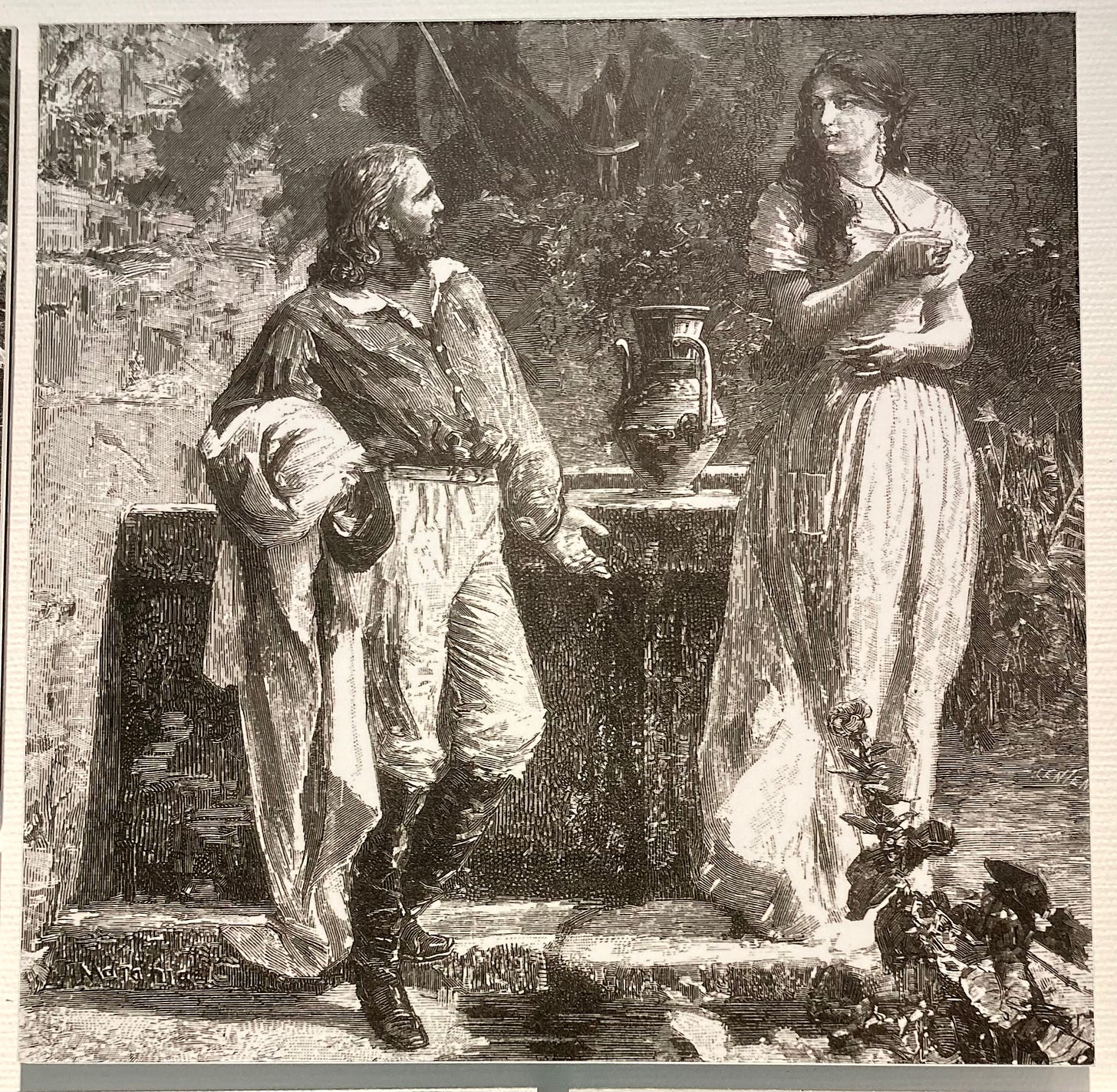
He was lauded by famous writers.
For example, French writer and politician Victor Hugo, who said (wrote?) these flowery words in 1860 (my translation, for better or worse):
“Garibaldi! What is Garibaldi? He is a man, nothing more. But a man in the most noble meaning of the word. A man of liberty, a man of humanity […]. Has he an army? No. A handful of volunteers. Does he have war munitions? None. Does he have gunpowder? Just a few barrels. Does he have cannons? Those of his enemies. What, therefore, is his strength? What is it that makes him win? What does he carry with him? The spirit of the People.
[…] Where there was a geographic border now there is a nation; where there was a corpse now there is a spirit; where there was a ghost now there is an archangel, the immense archangel of the people, liberty […] wings outstretched, rises and smiles on all humankind.”
While Hugo extolled Garibaldi’s magnetism and freedom fighting, Alexandre Dumas, of Three Musketeers fame, gushed, in 1862, about the hero’s, er, more tangible attributes. Again, translation mine:
“Garibaldi is a man of forty years, of medium height, well proportioned, with blond hair, blue eyes, a Greek forehead, nose, and chin; that is, approaching as much as possible an authentic type of beauty, like Jesus in Leonardo da Vinci’s Last Supper, whom he resembles very much. He wears a long beard. His usual clothing is a kind of close-fitting tunic, or even a shirt without any military insignia; his movements are full of elegance; his voice, of infinite sweetness, sounds like a song […].”
Though Dumas was married and supposedly had around 40 mistresses, he seems a bit fluid to me. Just sayin’.
He loved animals.
At the urging of Englishwoman Anna Winter, Countess of Southerland and a member of the Royal Society for the Prevention of Cruelty to Animals, Garibaldi established a similar organization in Italy, L’Ente Nazionale per la Protezione degli Animali. With the help of one of Garibaldi’s friends, the organization was founded in Turin in 1871.
Garibaldi had two beloved animals in his life. I was touched to learn how much he loved his horse, Marsala, given to him when she was about 15. He gave her a proper burial and headstone (on display in the barn in the house compound) when she died at age 30. Also, he rescued a dog, which he named Guerrillo, during the Uruguayan civil war. The dog had been shot and lost a leg, but that didn’t stop him from following Garibaldi or his attendant everywhere “in the shade of their horses,” according to museum signage.
He is memorialized in a staggering number of paintings, drawings, and sculptures.
Go ahead, do a search and you’ll see. But I’m showing you these two because the one on the left is “classic Garibaldi” while the one on the right, in which he’s (oddly) not blond, I like to call “Garibaldi the pirate.” Che bello!
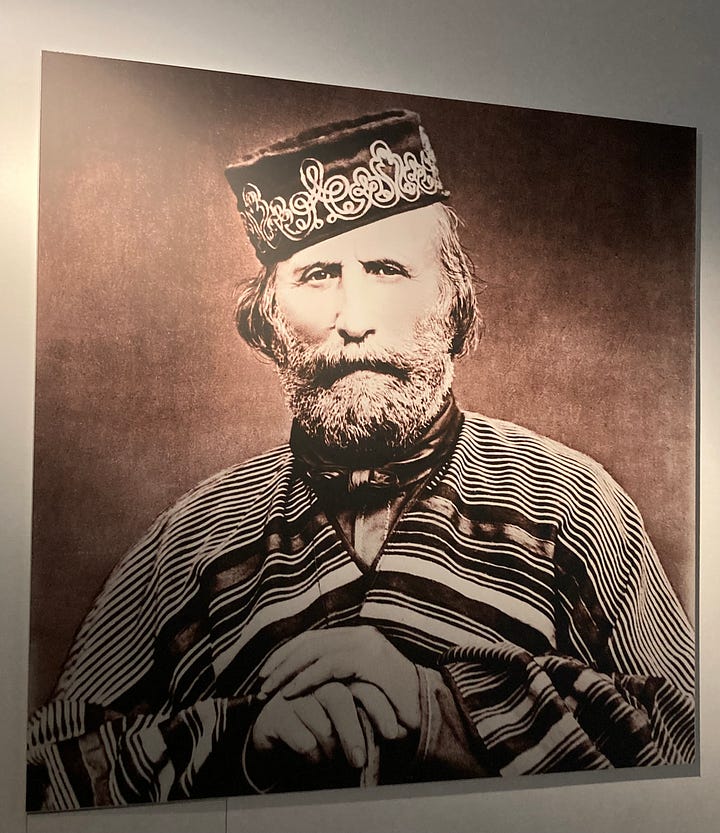
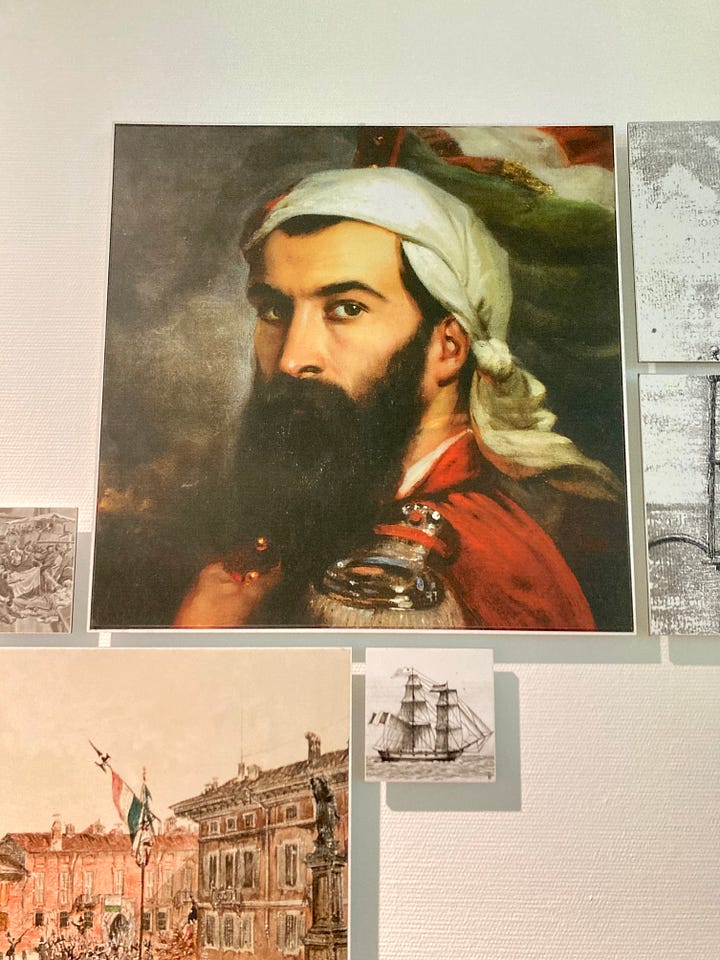
Okay, but what about his part in U.S. history?
Glad you asked! Unbeknownst to me and probably every other American whose study of U.S. history ended in high school, then-President Abraham Lincoln made a wartime appeal to Garibaldi for help. He wrote to “the hero of freedom” asking him “to lend the power of his name, his genius and his sword to the cause of the North.” Garibaldi was eager to help, but on one very pesky condition: only if Lincoln abolished slavery. Abe wasn’t ready to do that yet, and for that reason and others too complex to go into here, the plan for Garibaldi to save the day was called off. Later, Lincoln was ready to meet his terms, but again complications arose, and the war played out without Garibaldi.
So, raise your hands—how many of you Americans learned about Lincoln’s dealings with Garibaldi during the Civil War in your history classes? Uh-huh, that’s what I thought.
I’ll leave you with some of Garibaldi’s own words. After reiterating his love of freedom and his hatred for lies and tyranny, he asked to be cremated and his ashes put in a crystal bottle and buried “under my favorite juniper (French), to the left of the street that descends to the washhouse. I hope to see the fulfillment of Italian unification.” When I saw his rough-hewn tomb in the family plot, I feared his wishes hadn’t been fulfilled, though I held out hope that he had been cremated and his ashes divided. But no, my friend confirms that he lies wholly in that stone box. At least he’s in a place he loved, as close to the sea in death as he was at birth.
Alla prossima—
Cheryl
© 2023 Cheryl A. Ossola
Books of the week:
Garibaldi: Citizen of the World: A Biography by Alfonso Scirocco
The Hero’s Way: Walking with Garibaldi from Rome to Ravenna by Tim Parks (worth mentioning again because it’s been a while and it’s a perfect fit for this post)
P.S. My book! Which you can buy here or on the usual sites. Another fab option is to ask your local library to stock it. If you read it and like it, please tell your friends and/or leave a few lines of praise on any bookish site. You’ll make me over-the-moon happy. Baci!



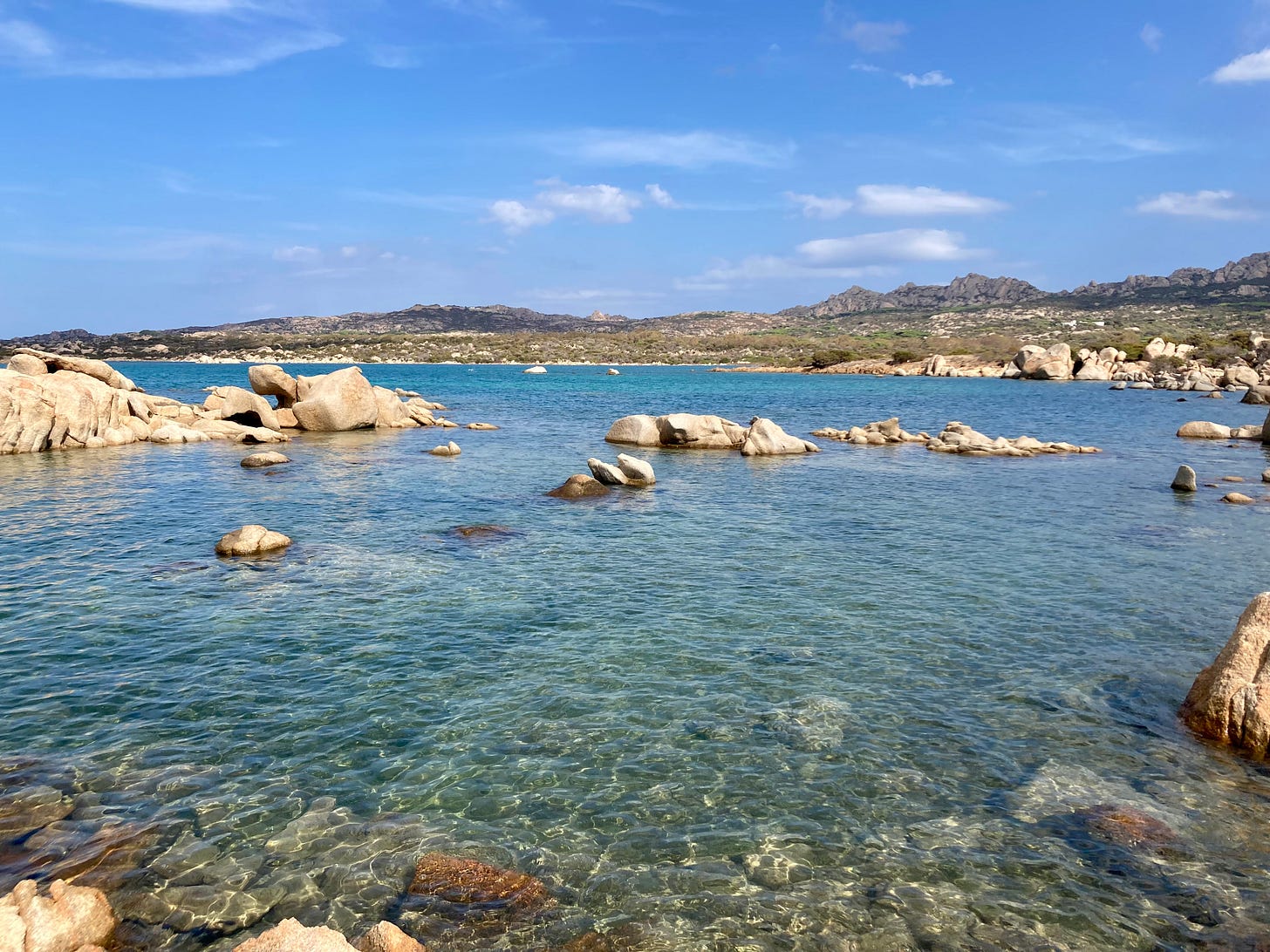
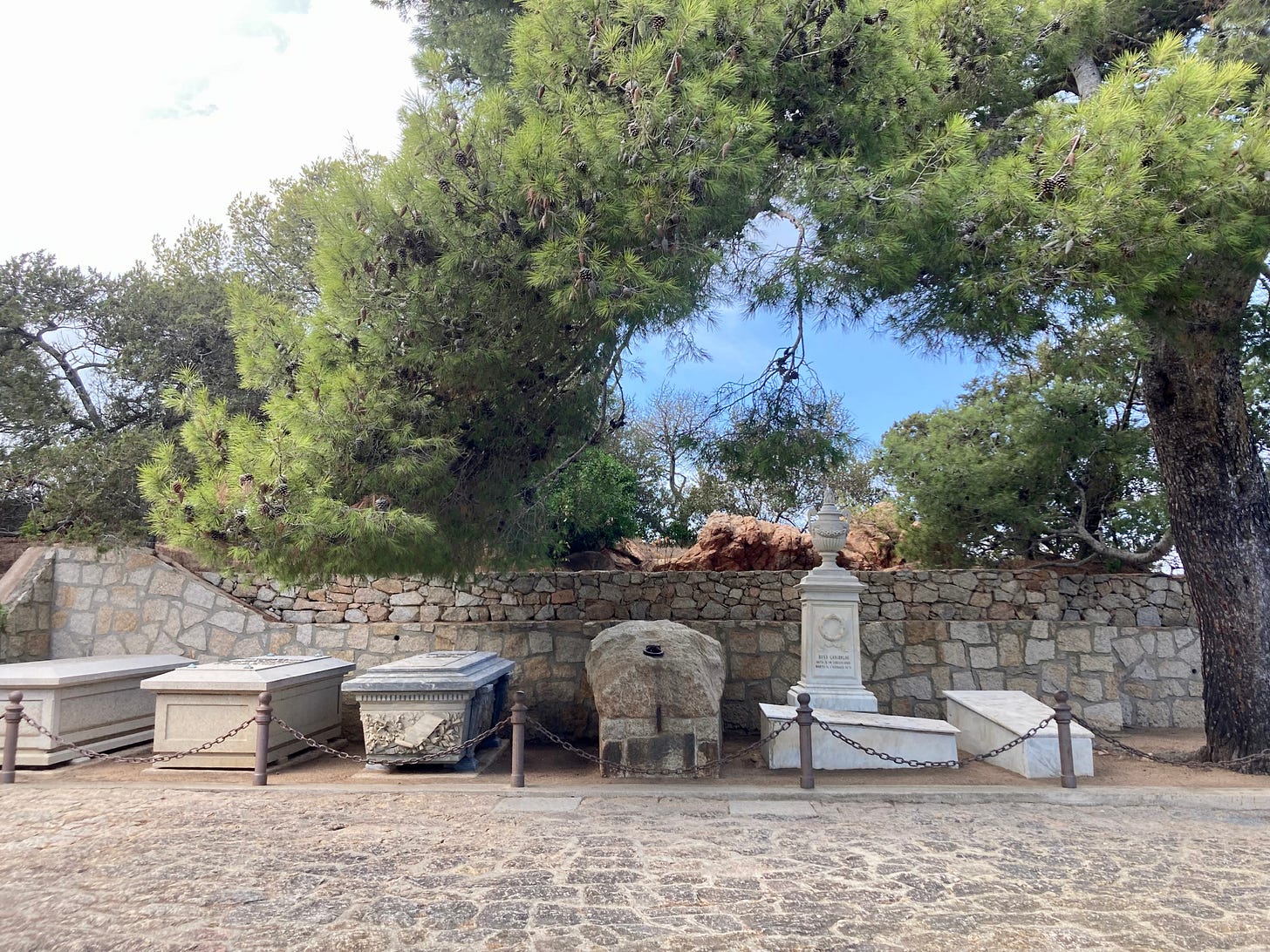

I love the way you told this story. Even in Italy, we don’t know him well enough. I was in awe when I discovered that he’s found the time to write like four novels and one drama besides his own memories in multiple volumes!
I love the statue of Anita in Janiculum Park, in Rome. It’s not as big as Garibaldi’s, but it’s very dramatic. They should do a film about her some day.